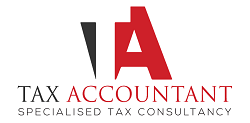There are a number of different types of limited companies within the UK that can be set up. There are several different factors which will help to determine what is right for you.
Private limited company – limited by shares (Ltd.)
This is a private company, which means the public is not able to purchase shares of the business. The shareholders are liable for the percentage of investment they have made in the business. E.g. if someone makes a 20% investment, they are accountable for 20% of the business. This is the most popular form of limited company in the UK.
Private limited company – limited by guarantee (LBG)
Generally, this type of company is a non-profit business or can be a charity. This means individuals are not responsible for their share of investment because there are no shareholders. There is a board which will be responsible for debts, they will act as guarantors. They will pay money to cover debts when required.
Public limited company (PLC)
In many ways, this is very similar to a private limited company, limited by share. However, the real difference is, it will offer its shares to the public. Therefore, members of the public can hold shares in the company and with this comes more legal obligations. In order to go public, a company will need two directors as well as two shareholders including a company secretary and a minimum of £50,000 of issued share capital.
If you are local in Telford and Wellington and would like to have free advice about the structure of your business or potential business, call office for free advice.
Limited liability partnership (LLP)
This works in a similar way to a limited liability company, limited by shares but there are partners instead of shareholders. The partners are responsible for an equal part of the business as well as their share of the business.
An example is, if a business has five partners, they will each be responsible for 20% of the business, this will also include any debts. It’s a perfect structure if the partners want to have an equal share in involvement. Partners will also actively manage the business which is different to those businesses that have shareholders as they need to vote in order to elect a board of directors who then decide who should run the business.
Private unlimited company
There are no requirements for a private unlimited company to submit financial statements or even an annual as limited companies do. This means that a private unlimited company can remain private. The structure will not have shareholders who have to take responsibility for their percentage of investment in the business. Therefore, all shareholders are responsible for business liabilities. If the business was to face any difficulties, they would be required to share the burden equally. This is not a common form of a limited company.
If you are considering becoming a limited company, then Tax Accountants in Telford and Wellington are on hand to help and assist you where ever required.

